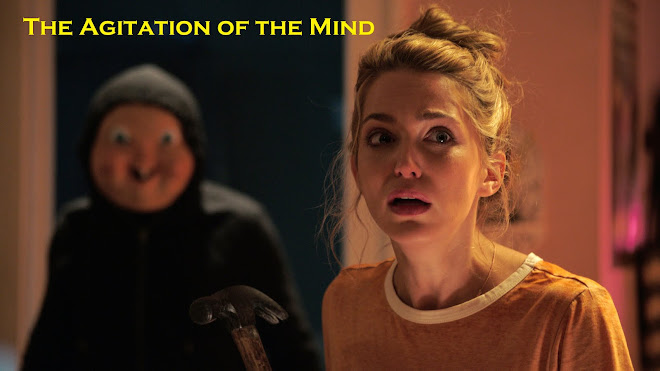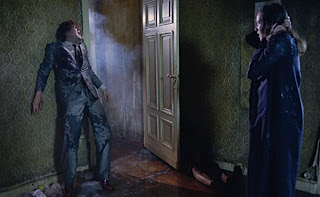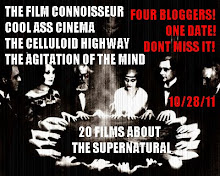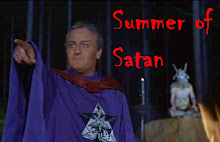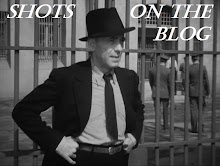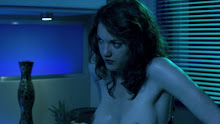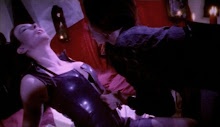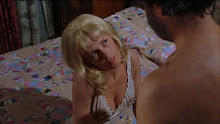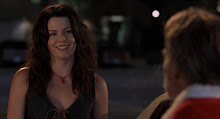‘Oblivion’ is a masterpiece of production design that
desperately wants to be a cerebral Tarkovskian study of ravaged landscapes,
existential turmoil and questions of identity … but has to, y’know, throw in
some hamfisted mainstream narrative tropes in order to justify its budget.
Opening with a slab of voiceover exposition, we learn
that an alien antagonist destroyed the moon (causing all manner of natural
catastrophe) prior to invading Earth. Someone on Earth authorised the use of
something called “the nimbus” (I’m guessing the President of the United States
in the first instance and a heavy duty piece of thermo-nuclear kit in the
second), effectively “winning the war but losing the planet”. Now there’s a
radiation zone, a number of power plants that process Earth’s remaining air and
water power to provide energy for off-world space station The Tet, and an
atmosphere-straddling platform occupied by Jack (Tom Cruise) and Victoria
(Andrea Riseborough), technicians who maintain the power plants and the drones
that safeguard them. Oh, we also learn that Jack and Victoria had “memory wipes”
in order to protect “the security of their mission” prior to taking the job. I
assume this was done before their
induction course. As the film begins, Jack is experiencing pre-destruction-of-Earth
hallucinations which he assumes are memories, while by-the-book Victoria just
wants to dot the i’s and cross the t’s and jet off to Titan (Jupiter’s moon,
where the last enclave of humanity are holed up) when their detail ends in a fortnight.
Anyone who hasn’t even hazarded a guess about where
this is going by now will probably view ‘Oblivion’ as an entirely original and
genre-defining work. The rest of us will happily tick off its many and unsubtly
referenced influences while we sit back and bathe in the visuals.
Because that’s the thing. For all that ‘Oblivion’ is a
derivate piece of work (particularly in the increasingly hackneyed second half
where it becomes a patchwork quilt of ‘Independence Day’, ‘I, Robot’ and ‘Moon’),
it’s the most genuinely gorgeous thing I’ve seen on the big screen this year. Jack
and Victoria’s cloud-based operations centre is kind of like a two-up-to-down
designed by Frank Lloyd Wright complete with helipad and swimming pool. A scene
in said swimming pool comes close to a sort of visual poetry. Director Joseph
Kosinski and DoP Claudio Miranda conjure eerily effective visions of a
dune-covered New York which are a million miles away from the usual post-apocalypse
imaginings. The technology is memorably rendered, too: Jack’s scout craft and
the drones themselves have a propulsive sense of movement and engineering,
while also looking careworn and, despite their sleek profiles, realistically utilitarian
in their design. Only the late-in-the-day visualisation of a maleficent
supercomputer as a slightly misshapen amplifier covered in sentient mould lets
the side down.
Performances vary: Cruise delivers with a likeable
everyman persona; Riseborough finds nuances in a character who could have been
decidedly one-note; Olga Kurylenko is saddled with a nothing role and does even
less with it; Morgan Freeman continues to be one of the coolest blokes on the
planet, claiming entire scenes for himself by doing little more than lighting a
cigar or wearing a knee-length leather jacket.
The script is anodyne at best, edging into total mess on
more than one occasion. Example: Jack gets shot in the shoulder at one point
and the wound is never reference, depicted or treated for the rest of the
movie. He’s shot and then, oh fuck it, he needs to do some heroic running,
jumping and falling down stuff, so let’s all pretend he never took that bullet
in the first place, ’kay?
Ordinarily, I’d have marked ‘Oblivion’ down for its
failings, consigned it to the file marked “ho hum” and probably not ever
bothered writing about it for Agitation. But I keep coming back to how damned
good it looks, and to the world-building and attention to detail of its first
half as Jack goes through the motions of a routine job in an extraordinary
situation; a guy who punches the clock, patches up the drones, patrols the wastelands
and somehow isn’t satisfied with the way things are; a guy who’s just starting
to think beyond the accepted parameters.
